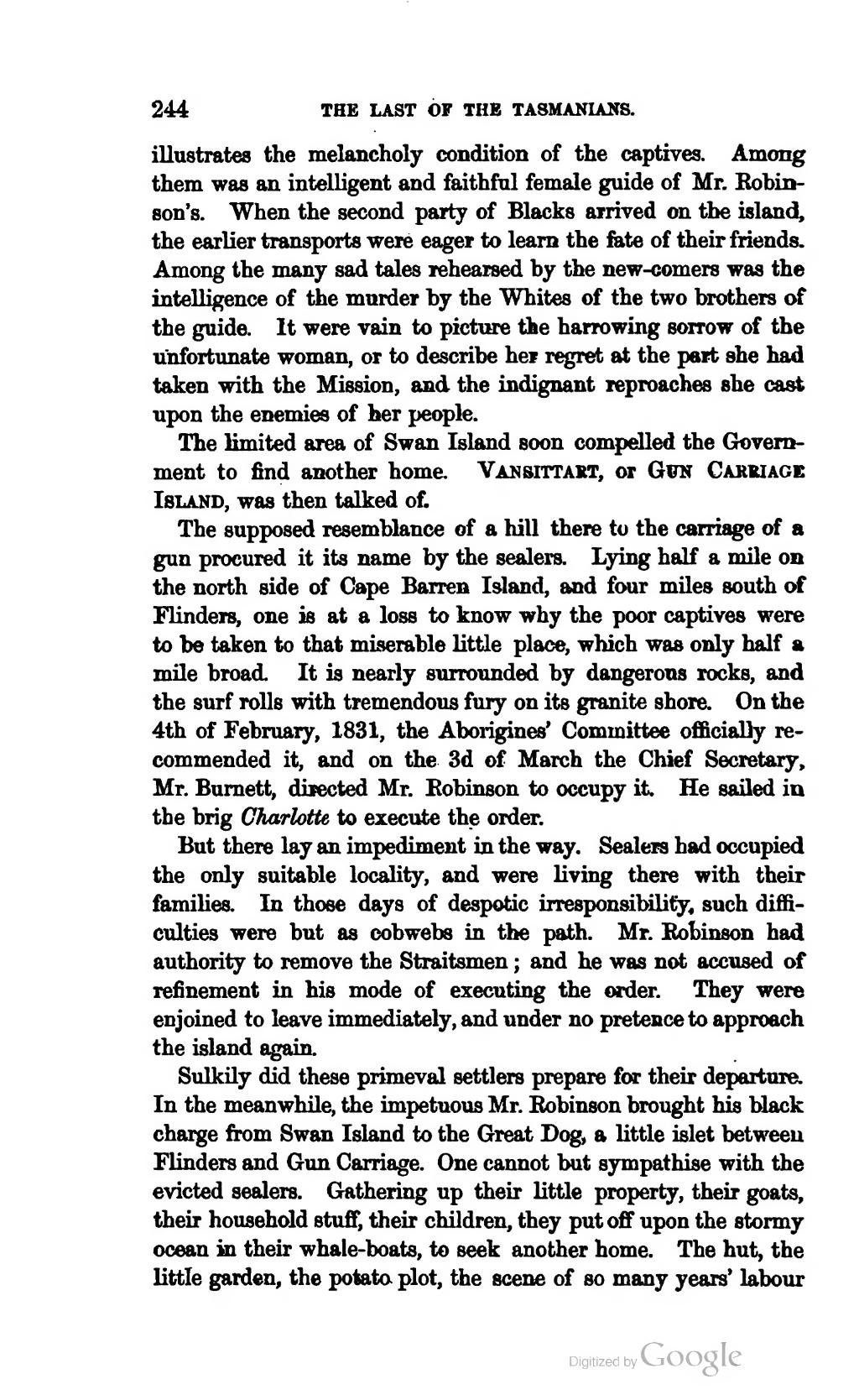illustrates the melancholy condition of the captives. Among them was an intelligent and faithful female guide of Mr. Robinson's. When the second party of Blacks arrived on the island, the earlier transports were eager to learn the fate of their friends. Among the many sad tales rehearsed by the new-comers was the intelligence of the murder by the Whites of the two brothers of the guide. It were vain to picture the harrowing sorrow of the unfortunate woman, or to describe her regret at the part she had taken with the Mission, and the indignant reproaches she cast upon the enemies of her people.
The limited area of Swan Island soon compelled the Government to find another home. Vansittart, or Gun Carriage Island, was then talked of.
The supposed resemblance of a hill there to the carriage of a gun procured it its name by the sealers. Lying half a mile on the north side of Cape Barren Island, and four miles south of Flinders, one is at a loss to know why the poor captives were to be taken to that miserable little place, which was only half a mile broad. It is nearly surrounded by dangerous rocks, and the surf rolls with tremendous fury on its granite shore. On the 4th of February, 1831, the Aborigines' Committee officially recommended it, and on the 3d of March the Chief Secretary, Mr. Burnett, directed Mr. Robinson to occupy it. He sailed in the brig Charlotte to execute the order.
But there lay an impediment in the way. Sealers had occupied the only suitable locality, and were living there with their families. In those days of despotic irresponsibility such difficulties were but as cobwebs in the path. Mr. Robinson had authority to remove the Straitsmen; and he was not accused of refinement in his mode of executing the order. They were enjoined to leave immediately, and under no pretence to approach the island again.
Sulkily did these primeval settlers prepare for their departure. In the meanwhile, the impetuous Mr. Robinson brought his black charge from Swan Island to the Great Dog, a little islet between Flinders and Gun Carriage. One cannot but sympathise with the evicted sealers. Gathering up their little property, their goats, their household stuff, their children, they put off upon the stormy ocean in their whale-boats, to seek another home. The hut, the little garden, the potato plot, the scene of so many years' labour
